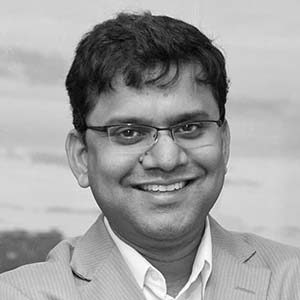
Fragile Earth 2024
Fragile Earth: Generative and Foundational Models for Sustainable Development.

Since 2016, the Fragile Earth Workshop has brought together the research community to find and explore how data science can measure and progress climate and social issues, following the framework of the United Nations Sustainable Development Goals (SDGs).
The Fragile Earth Workshop was one of three workshops associated with the planned Earth Day event at KDD 2019 (organized by our OC members, Shashi Shekhar and James Hodson), provided keynotes and panels for Earth Day in 2020, and has been a recurring workshop at the annual KDD conference for the past seven years. We hope to continue this tradition in 2024.
Fragile Earth 2024: August 26, 2024
KDD Conference August 25-29th
Barcelona, Spain
Contact:
Fragile Earth: AI for Climate Sustainability - Generative and Foundational Models for Sustainable Development is a workshop taking place as part of the ACM's KDD 2024 Conference on research in knowledge discovery and data mining and their applications (August 25-29, Barcelona, Spain). The workshop will be a half-day event on August 26, 2024 which is part of a KDD “Fragile Earth” Workshop series, running since 2016. For more information, see the Fragile Earth 2024 website.
Accepted submissions will have papers and videos archived on the Fragile Earth website, but will not be included in the official KDD Proceedings. Authors will not be asked to assign copyright or rights to future submission elsewhere by participating in this workshop.
Schedule
Call for Papers
Call for Papers
Background Info
Since 2016, the Fragile Earth Workshop has brought together the research community to find and explore how data science can measure and progress climate and social issues, following the framework of the United Nations Sustainable Development Goals (SDGs). Over the years, Fragile Earth workshop has focused on SDGs. This year we also focus on two other aspects ,Generative and Foundational Models for Sustainable Development. The generative and foundational models in the context of climate change and sustainable development present significant potential and intricate challenges. Generative models, simulating advanced climate scenarios, offer a powerful tool for predicting local and global climate patterns, while foundational models, rooted in extensive knowledge bases, provide a solid understanding of climate systems. Together, they can also support the realization of digital twins for local contexts, aiding in sustainable development strategies. These models facilitate nuanced analyses of environmental impacts, enhance public awareness, and inform policymakers for sustainable practices. However, leveraging and integrating these models in a secure and trustworthy way presents significant challenges, including ensuring prediction accuracy, quantifying uncertainties, addressing biases in historical data, and navigating ethical concerns. Diverse datasets and knowledge integration are crucial to avoid disparities and bias, while ethical considerations are necessary to prevent dissemination of misinformation. Ironically, the high computational requirement for meeting all the desiderata for such large scale generative and foundation models also need to be addressed for their sustainable operationalization. Balancing the strengths of these models with their cons and costs is imperative for advancing the Sustainable Development Plan, fostering global awareness, and formulating effective policies for a resilient future. .
The application problems and agenda of interest include the Sustainable Development Goals, accelerating progress on the United Nations’ 2030 agenda, envisioning solutions for climate mitigation and adaptation, and measuring and diminishing the inequitable benefits and burdens across socioeconomic groups. In particular, the workshop has maintained a strong focus and community in the following areas: food security, sustainable agricultural practices and supply chains, ecosystem restoration, water management, sustainable energy, climate action and adaptation, socioeconomic equality, and resilience across a broad range of natural disasters such as wildfires, storms, and hurricanes.
List of Topics
The Workshop will target both methodological and applied research agenda within these areas of investigation.
- The methodological topics of interest are relevant areas of KDD, including but not limited to:
- generative and foundational models in the context of climate change and sustainable development
- diverse datasets and knowledge integration
- secure and trustworthy generative and foundational models
- the integration of physics into data-driven modeling and the use of machine learning, generative and foundational models to enhance physical simulations
- model explainability, uncertainty quantification, privacy and fairness questions in environmental modeling
- integration of symbolic and neural machine learning for accurate and interpretable machine learning, generative and foundational models
- causal learning in complex physical world as foundations for model trustworthiness
- sustainable computing paradigms for generative and foundation models
- ML applications at low-energy edge devices
- frameworks for helping the scientific and KDD communities to work together
- combining predictive and prescriptive tasks
- multi-agent systems for participatory modeling that integrate stakeholders into knowledge creation and decision processes
- geometric and topological deep learning for environmental modeling and assessment of environmental justice
- Domains of interest include but are not limited to:
- food security, sustainable agricultural practices and supply chains, ecosystem restoration, water management, sustainable energy, climate action and adaptation, socioeconomic equality, and disaster resilience
- wildfire analytics: detection, prediction, and discovery; wildfire smoke and environmental fairness
- innovations in data science and predictive modeling, applied to earth sciences
- investigations centering sustainability, including but not limited to environmental justice
- data-informed climate change and resource management policy discussions
- carbon removal technologies
- easily usable and publicly available data+model+frameworks (possibly challenge problems) based on satellite/drone data to monitor and predictively model the fragile earth
- natural catastrophes under a changing climate ranging from improved modeling to development of resilient infrastructures
- economic/quantitative characterization of climate change risk and associated incentives towards policy/decision making.
- Any other topics related to the themes of the workshop are welcome!
- The methodological topics of interest are relevant areas of KDD, including but not limited to:
The papers from last year can be found here:
Organizers

Naoki Abe

Kathleen Buckingham

Yuzhou Chen

Bistra Dilkina

Emre Eftelioglu

Auroop Ganguly

Yulia R. Gel

James Hodson

Ramakrishnan Kannan

Jiafu Mao
Share this Page
Get Involved
Join our efforts to unlock AI’s potential towards serving humanity.
Support us
Become a Partner
Volunteer with us
Newsletter


